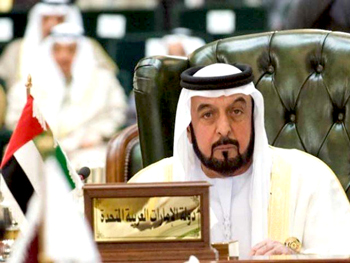Abu Dhabi, Jun 24: The United Arab Emirates warned Qatar Friday that it faces "divorce" from its Gulf neighbours unless it takes their demands seriously, as the United Nations offered to help resolve the regional diplomatic crisis.
The list of demands includes the closure of Al-Jazeera television, a long-standing source of conflict between Doha and neighbouring countries which accuse it of fomenting regional strife.
The Qatar-based broadcaster denounced the move as an attack on media freedom.
Anwar Gargash, the UAE's state minister for foreign affairs, issued the warning more than two weeks into the oil-rich region's worst diplomatic crisis in years.
"It would be wiser that (Qatar) deal seriously with the demands and concerns of the neighbours or a divorce will take place," he wrote on Twitter.
The demands confirm that "the crisis is profound," Gargash added.
The affair has also drawn in the United States, whose Secretary of State Rex Tillerson has called for Gulf unity.
UN spokeswoman Eri Kaneko said the world body continued "to follow the situation with deep concern".
"We hope that the countries involved resolve the situation through dialogue," she said. "We are ready to assist if requested by the parties."
Qatar is the world's leading exporter of liquefied natural gas (LNG) and hosts the biggest American airbase in the Middle East.
Gargash accused Qatar of leaking a document containing the demands by Saudi Arabia, the UAE, Bahrain and Egypt, which have cut diplomatic ties and accused Qatar of sponsoring terrorism.
Qatar strongly denies such charges.
'Attempt to silence'
The demands have not been officially unveiled but Doha-based Al-Jazeera news channel said overnight Thursday they were handed to Qatar by Kuwait, which is mediating the dispute.
According to the document posted on social media, the four countries demand that Qatar closes Al-Jazeera, downgrades diplomatic ties with Iran and shuts a Turkish military base in the emirate.
Al-Jazeera, one of the largest news organisations in the world, said that it "deplores" calls for it to be taken off air.
"We in the network believe that any call for closing down Al-Jazeera is nothing but an attempt to silence the freedom of expression in the region and to suppress people's right to information," the broadcaster said in a statement.
Al-Jazeera English's managing director, Giles Trendle, said it was like "Germany demanding Britain to close down the BBC", in a video posted on social media.
Qatar is a member of the Gulf Cooperation Council with Bahrain, Kuwait, Oman, Saudi Arabia and the UAE.
On June 5, Saudi Arabia and the UAE led a severing of all links with Qatar for allegedly supporting groups, including some backed by Iran, "that aim to destabilise the region".
Other allies, including Egypt and Bahrain, followed.
Saudi Arabia regularly accuses Iran, its regional rival, of interference throughout the Middle East.
US 'mystified'
As well as cutting diplomatic ties, Qatar's neighbours closed their air space to Qatari carriers and blocked the emirate's only land border, vital for its food imports.
The list of 13 demands circulating on social media also says Qatar must cut ties to groups including the Muslim Brotherhood, the Islamic State organisation, Al-Qaeda and Lebanon's Iran-backed Hezbollah movement.
Qatar is also required to hand over opposition figures wanted by its three neighbours and Egypt.
In addition to Al-Jazeera, it must shut online information sites that it supports, according to the reported demands.
Although there has yet to be an official reaction to the list from the Doha government, Qatar's Human Rights Committee said the demands represented "gross violations" of basic rights.
In Qatar, the hashtag "the list is rejected" trended in Arabic on social media.
Gargash though urged Qatar to cede to the demands: "The brother (Qatar) must realise that the solution for its crisis lies not in Tehran or Beirut or Ankara or Western capitals or in media outlets, but in regaining the trust of its neighbours," he said.
Tillerson said on Wednesday that Washington had been pushing for a clear list of grievances that are "reasonable and actionable".
"Our role has been to encourage the parties to get their issues on the table, clearly articulated, so that those issues can be addressed and some resolution process can get underway to bring this to a conclusion," he said.
His spokeswoman Heather Nauert said Tuesday the United States was "mystified" that Saudi Arabia and its Gulf allies had failed to present details justifying their embargo on Qatar.
US President Donald Trump, however, has made statements siding with Saudi Arabia in the crisis.






Comments
Add new comment